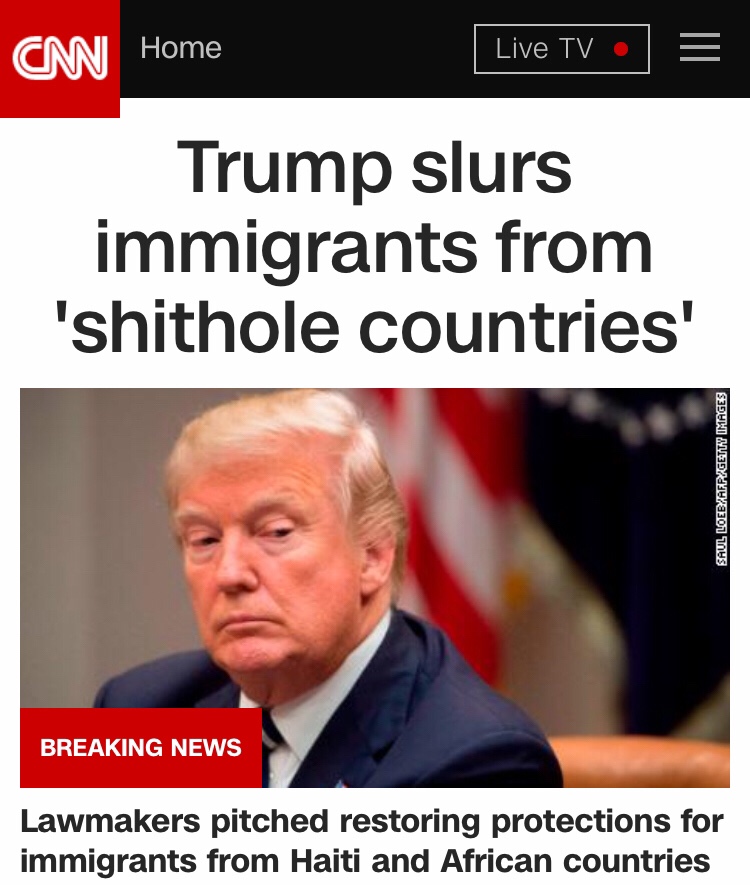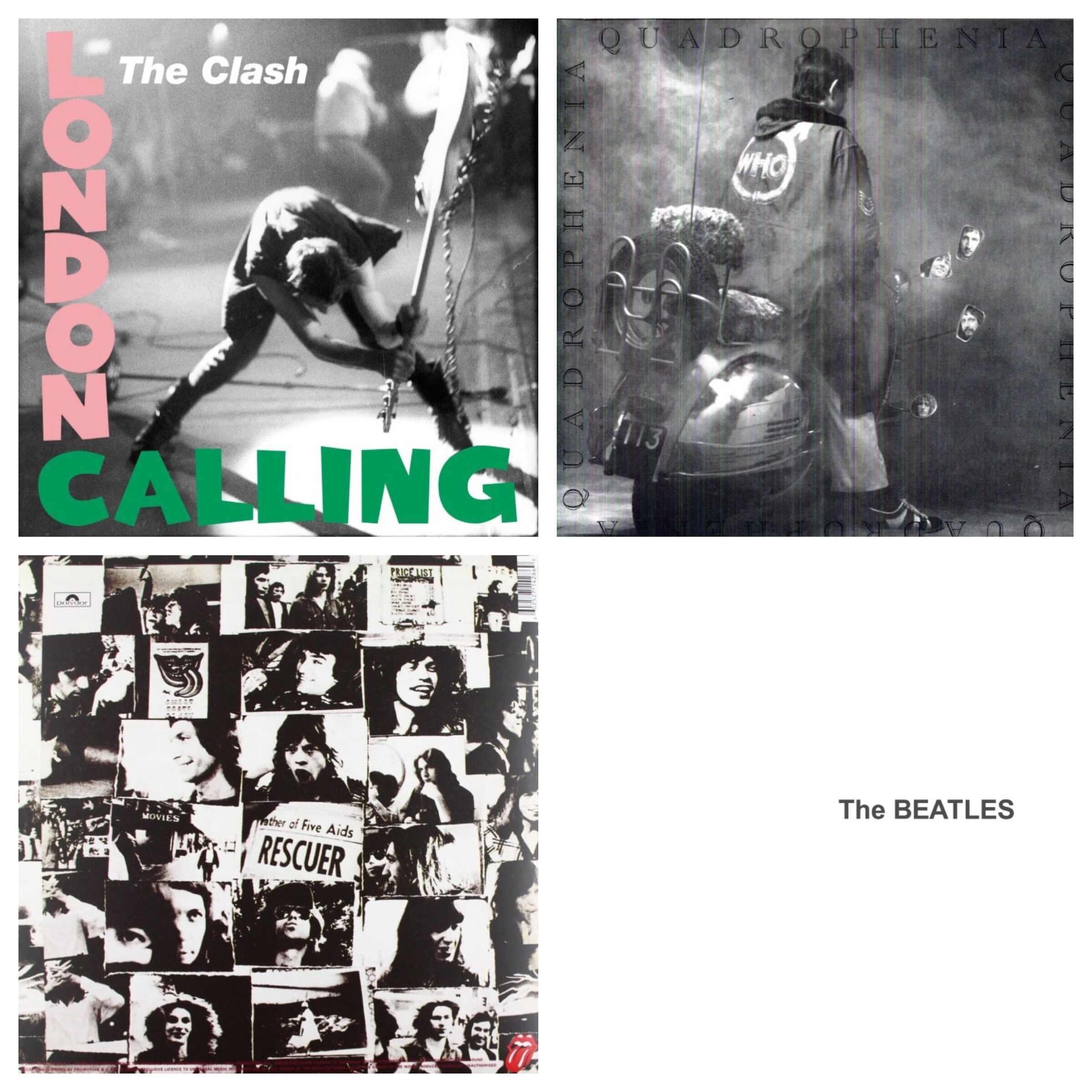Seriously: is the United States of America even a country anymore?
Personally, I have doubts.

Kinsellacast episode one – second attempt!
Trudeau’s open mic tour takes guts
It just does. And I said so on Tasha’s show yesterday. Also on Brian Lilley’s show last night.
Stephen Harper never, ever did this unscripted, unscreened stuff. Few Prime Ministers have, in fact.
Also on, Tory Jamie and Dipper Anne – and they (sort of) agreed. Brian Lilley even (sort of) agreed!
Other stuff was discussed, here:
Justin Trudeau, up close and personal
On @am640 now with @TashaKheiriddin @jellerton @anneedawson and I'm the one defending @JustinTrudeau on his cross-Canada tour. It shows guts, frankly. #cdnpoli
— Warren Kinsella (@kinsellawarren) January 10, 2018
Ten reasons why Oprah would be a great candidate
Besides the weather, it’s all anyone is talking about: her speech at that awards thing was a blockbuster.
Personally, I think it’s a cool idea. Here’s ten reasons why.
1. If a corrupt, evil, mentally unfit TV billionaire could win, then a principled, decent, smart TV billionaire could certainly beat him.
2. She would be a candidate at the precise moment when women are dominating the public and political agenda, and are looking for a candidate who will speak for them.
3. She uses her celebrity in positive ways – to oppose bullying thugs (cf. Trump) and to promote great leaders (cf. Obama, the anti-Trump).
4. The most motivated Democratic constituency – as we saw in Alabama – is African-American women. An Oprah candidacy would keep them motivated and involved.
5. She actually has a legislative record – cf. The Protect Our Children Act, an anti-predatory bill that became known as the Oprah Act. She gets stuff done, even as a private citizen.
6. She’s likeable and relatable, to say the least. She didn’t get millions upon millions of viewers, and build a communications empire, by being a repellant reality TV circus act – she did it by being a person average folks want to bring into their living rooms, every single day. As they did.
7. Does she have many years of political involvement? No, she doesn’t, and so what. In an era when many voters, on all points on the ideological spectrum (see: Trump and Sanders) are looking for atypical/outsider candidates, Oprah’s distance from Capitol Hill is a help, not a hindrance.
8. She may be a billionaire, but she comes from humble roots – the child of an unwed mother in Mississippi, a survivor of sexual abuse, she was an honours student who could recite Bible verses off the top of her head. She pulled herself up by her bootstraps. And, she’s Oprah, for Chrissakes.
9. She is unique, in that she is one of the few Weinstein-era celebrities who has retained her moral authority. At a time when America is turning its lonely/anxious eyes to a Joe DiMaggio, Oprah is Joe DiMaggio. She’s Poprah.
10. She can win. She can win. Whether Trump is there or not – felled by Mueller or resigning to head off a post-midterm impeachment – she can beat him, just as she can beat the unholy cabal of Pence, Ryan et al. She can win.
So, to those nay-sayers, objecting to my ten points here or on Facebook or Twitter, I say this:
If not Oprah, then who? Who is the Democratic alternative?
What so proudly we applesauce applesauce
Did the Mango Mussolini forget the words to the anthem of the United States?
Sure looks like it!
As labour leader Eugene V. Debs memorably said: “In every age it has been the tyrant, the oppressor and the exploiter who has wrapped himself in the cloak of patriotism, or religion, or both to deceive and overawe the people.”
Column: l’affaire Boyle
Not so long ago, I was in Vancouver at the same time as Jean Chretien. He was there for his law firm, I was there for mine. We decided to get together, in a spot down in Gastown.
It was sunny and a truly beautiful day. Looking outside, Chretien suggested we go for a walk. So, we left to take a walk – me, the former Prime Minister, and a single plainclothes RCMP officer.
Bruce Hartley, Chretien’s long-serving right-hand guy – and, frankly, the best EA in the history of Canadian politics – wasn’t with us. He had business elsewhere. So, Chretien, me and the cop strolled along Water Street, heading West.
People stopped and stared. Japanese tourists took pictures. BC Transit workers watched Chretien walk by, mouths agape. Every few feet, Chretien would be stopped and asked for an autograph or to pose for a selfie. It was a lot of fun.
At one point, in front of Waterfront Station, a homeless guy called out to Chretien. The guy was sitting on the sidewalk, bearded and a little bit grimy. He stood up and moved our way. “Hey, Chretien!” the homeless guy yelled. “Hey, Chretien!”
The homeless guy now had the RCMP officer’s full attention, and mine, too. I started pondering whether I could take a bullet for the greatest-ever Prime Minister, and concluded that I could and would. But the homeless guy meant no harm. He extended a grubby hand. “Jean,” he said, giving a gap-toothed smile, “I just want to thank you for keeping us out of Bush’s illegal war in Iraq!”
Chretien burst out laughing, and so did I. The Mountie relaxed. Chretien gave the homeless guy five bucks.
Apologies for the length of this little anecdote, but it’s become relevant in recent days. To wit: how does one get a meeting with a Prime Minister?
Quite a few folks are wondering about that, in the wake of the revelation that Justin Trudeau – a serving Prime Minister, and not just a former one – met with the rather-controversial Boyle family. How did such a meeting happen?
The Boyles, of course, are the folks who were held hostage by terrorists and jihadists for half a decade in different locations in Afghanistan and Pakistan. Joshua Boyle, the father, is a Canadian and was tortured and beaten. Caitlan Coleman, his American wife, was raped. Their three young children were born in captivity.
They returned to Canada in October and met with Trudeau in December. The Boyles requested the meeting, apparently, and Trudeau agreed. The Prime Minister received the Boyles in his Parliament Hill office, but precious few knew about it. After Christmas, however, the Boyles posted photos of the meeting on Twitter. Eyebrows were raised. Observers were puzzled.
When Joshua Boyle was last week charged with more than a dozen serious criminal offences – among them sexual assault, assault, administering a noxious substance, unlawful confinement and uttering threats – observers were more than puzzled. Many, mostly of the conservative variety, were apoplectic.
In the National Post, Christie Blatchford wrote: “As Joshua Boyle, thank God, must be presumed innocent, so may Justin Trudeau be presumed to be merely stupid.” Her colleague Chris Selley huffed that putting Trudeau together with Joshua Boyle was “a very strange decision,” a “bizarre misstep,” and a “backlash” is therefore coming that “could be legendary.”
“Legendary.” Could be. Or, it could be – as in most things in politics – the most blasé explanation for events is the likeliest one. This is Canadian politics, after all.
Sure, it seems likely that Joshua Boyle was under criminal investigation when he and his wife and kids met with Justin Trudeau. It’s obvious, however, that Trudeau didn’t know that: there isn’t a political advisor alive – outside of Donald Trump’s circle, that is – who would knowingly put his or her boss in a meeting with a criminal, or a soon-to-be-alleged one.
It was in Joshua Boyle’s interest to get those photos published, because they potentially put a Crown prosecutor in a bit of a bind. So we know Boyle didn’t tell Trudeau what was coming, in just two week’s time.
But what of the RCMP? What of the Privy Council Office, Trudeau’s personal bureaucracy? Didn’t they know? Why not, if not? And if they did, why didn’t they warn Trudeau not to meet with Joshua Boyle?
If the Mounties knew Boyle was about to be charged, and declined to tell Trudeau’s staff, it would be a massive scandal – but not the first time it has happened. During this writer’s tenure on the Hill, it was well-known that the RCMP, CSIS and/or the uniformed guys and gals at the department of National Defence would sometimes place their political masters in harm’s way, so as to (a) be rid of them or (b) acquire leverage to be deployed at budget time or whatever.
Would PCO have known? Perhaps, but highly unlikely. The Privy Council Office mainly provides advice to the Prime Minister and his or her government. In my experience, PCO is highly controversy-adverse. They write memos and place ATIP-less yellow sticky notes on binders: they are not in the business of manufacturing scandal. PCO dislikes scandal.
For now, no one is talking on the record about who knew what, and when they knew it. We can be reasonably assured that Justin Trudeau and his senior staff are justifiably unhappy, and have had some interesting chats with the RCMP. When it returns at months’-end, angry questions in the House of Commons are inevitable.
In the meantime, however, the most bland explanation for l’affaire Boyle is the most likely: Joshua Boyle asked for a meeting, no one objected, so Justin Trudeau agreed.
Sometimes – as with homeless guys, just as it is with a former hostage of the Taliban – these things simply happen.
Reduce doubles into rubble
As a geriatric punk, I should despise double albums. And, in the case of 7 and 8, I do. But the rest are actually good picks. Discuss.
Highly-scientific poll™️: best alternate name for the Stable Genius©
Best @realDonaldTrump alternate names:
— Warren Kinsella (@kinsellawarren) January 6, 2018


